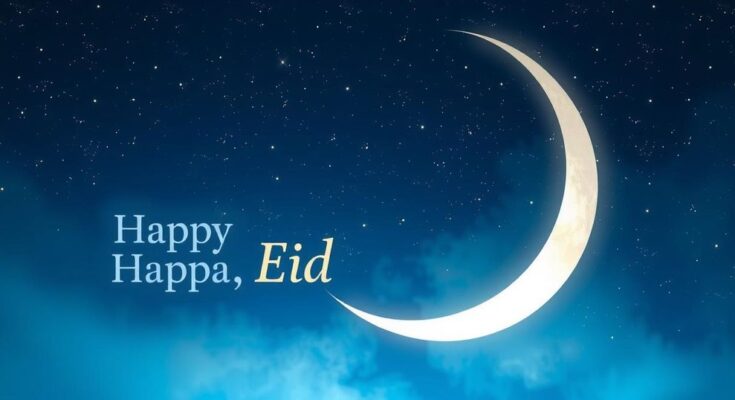Eid-ul-Fitr for 2025 varies by region, with potential dates in India as March 31 or April 1 and in Saudi Arabia as March 30 or 31, depending on moon sightings. Eid celebrations come with differing holiday durations across the Middle East and Western countries, highlighting the festival’s importance in the calendar.
Eid-ul-Fitr 2025 is expected to be celebrated on different dates based on local moon sightings. Ramadan commenced in India on March 2nd and on March 1st in Saudi Arabia. Hence, the Eid date varies: in India, it can be March 31st if the moon is seen on March 30th, otherwise it will be on April 1st. In Saudi Arabia, Eid will be on March 30th if the moon is sighted on March 29th; otherwise, it will be on March 31st.
In the Middle East, including Saudi Arabia, UAE, Qatar, and Kuwait, the moon sighting is anticipated on March 29th. In the United States and other Western countries, the date may rely on local moon sightings or official announcements from Saudi Arabia. Eid al-Fitr is a significant celebration in the Islamic calendar, confirming its date after the crescent moon visibility.
Eid holidays for 2025 differ regionally. In the UAE, the holiday extends for three days from Shawwal 1st to 3rd, possibly becoming four days if Ramadan lasts 30 days. Saudi Arabia observes a four-day holiday from March 30th to April 2nd, with private sector workers potentially enjoying a six-day break. In Kuwait, if Eid occurs on March 30th, there will be a three-day holiday, whereas a nine-day holiday will be provided if Eid is on March 31st.
The celebration of Eid-ul-Fitr in 2025 will depend on lunar sightings, with different dates likely across various countries. The holidays range from three to nine days based on local traditions and moon visibility, reflecting the significance of this festival in the Islamic calendar.
Original Source: m.economictimes.com




